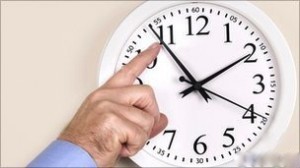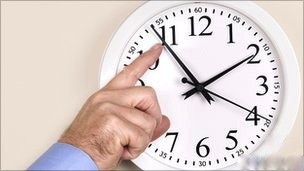 It only happens twice a year, and yet most of us still struggle to work out how and when to change our clocks.
It only happens twice a year, and yet most of us still struggle to work out how and when to change our clocks.
So, to clarify: The clocks will be changing tonight – well, 2.00am to be precise to mark the start British Summer Time – so do not forget to put your clock, watch etc forward one hour if you go to bed before then.
While it is good news for those on night shift as they will have to work an hour less, it is not so good for the rest of us who get to spend an hour less in bed.
British Summer Time ends on the last Sunday of October and since 2002, the beginning and end of BST have coincided with a clock change across the European Union – known as Central European Summer Time.
When did the clock change tradition begin?
BST was first established by the Summer Time Act in 1916, after a campaign by a builder called William Willett.
He was reportedly irritated with the “waste” of daylight in the early mornings of summer – and suggested the change in 1907, publishing a pamphlet called The Waste of Daylight.
In 1916, one year after Willett’s death, BST began on 2t May and ended on 1 October.
In 1940, during the Second World War, clocks across Britain were not put back an hour at the end of Summer Time in a bid to save fuel and money.
In subsequent years, clocks continued to be advanced by one hour each spring and put back by an hour each autumn until July 1945.
During this time, Britain was therefore two hours ahead of GMT – which was called British Double Summer Time (BDST).
This ended in 1945, when the clocks were brought back in line with BST.
What are the benefits?
Aside from those who forget and turn up to work an hour late the Monday afterwards, the switch to BST is reported to have several benefits.
In 1968 and 1971, BST was employed all year round as an experiment. In October 1970, an analysis of road accident data suggested there had been a substantial fall in the number of casualties in the evening.
However, the period in which the research was taken coincided with the introduction of Drink-driving legislation and the estimates were modified in 1989.
The proposal to use BST all year round was defeated by MPs, with particular lobbying from Scottish farmers and agricultural groups, who said the switch would have a detrimental effect on their livestock.
Others have claimed people who suffer from Seasonal Affective Disorder (SAD) benefit from the extra hour of sunlight.
Tags:






